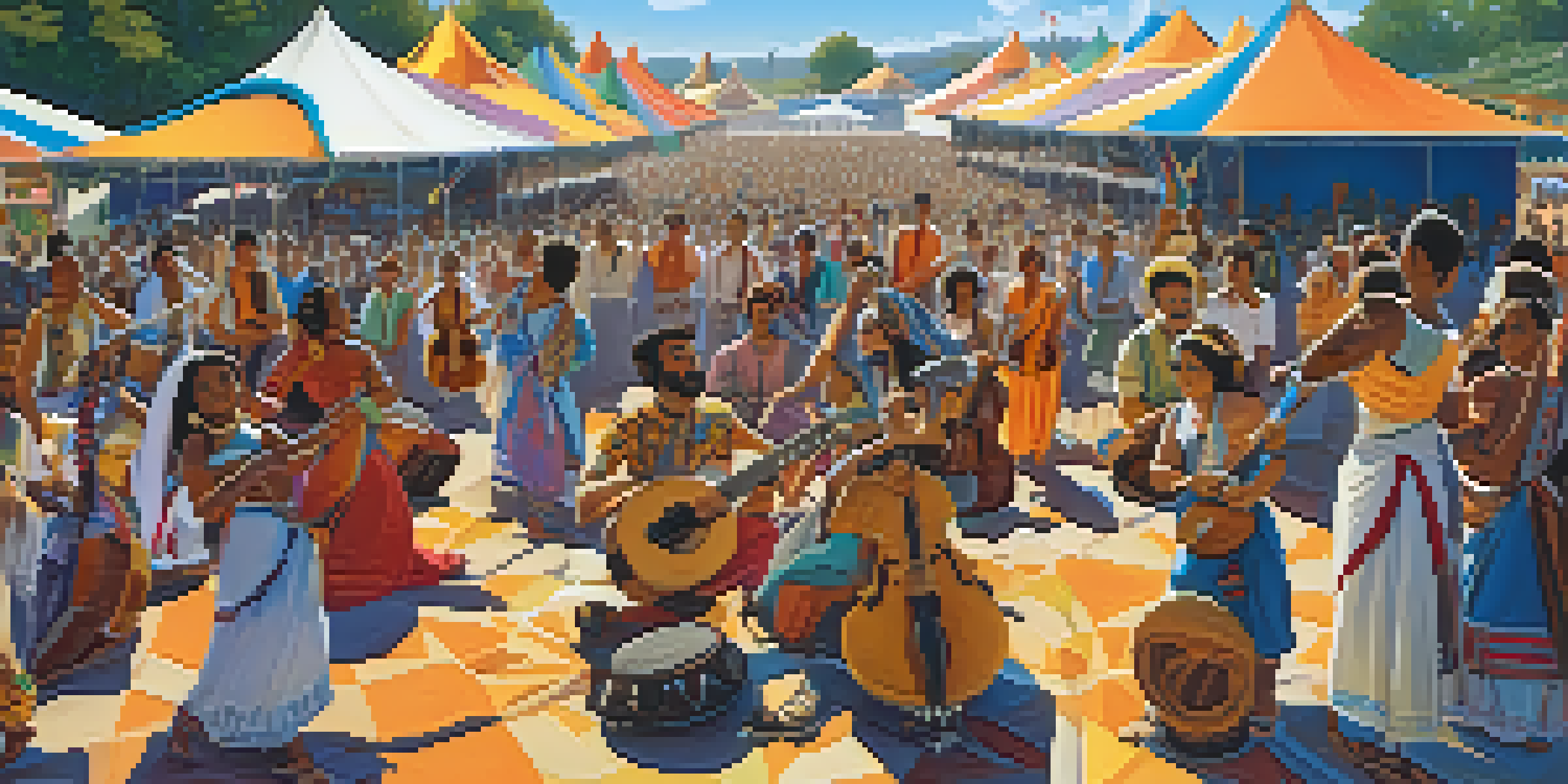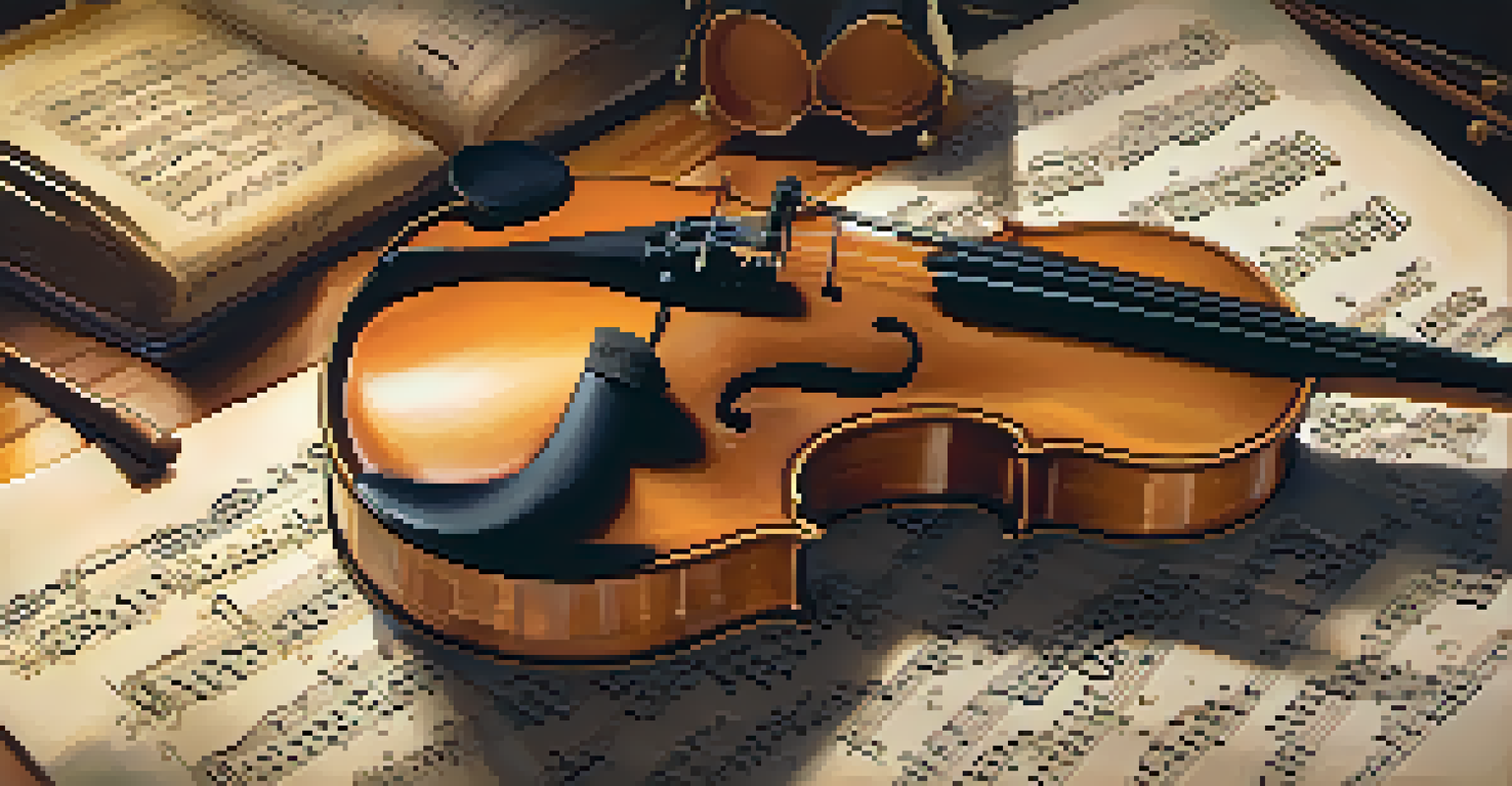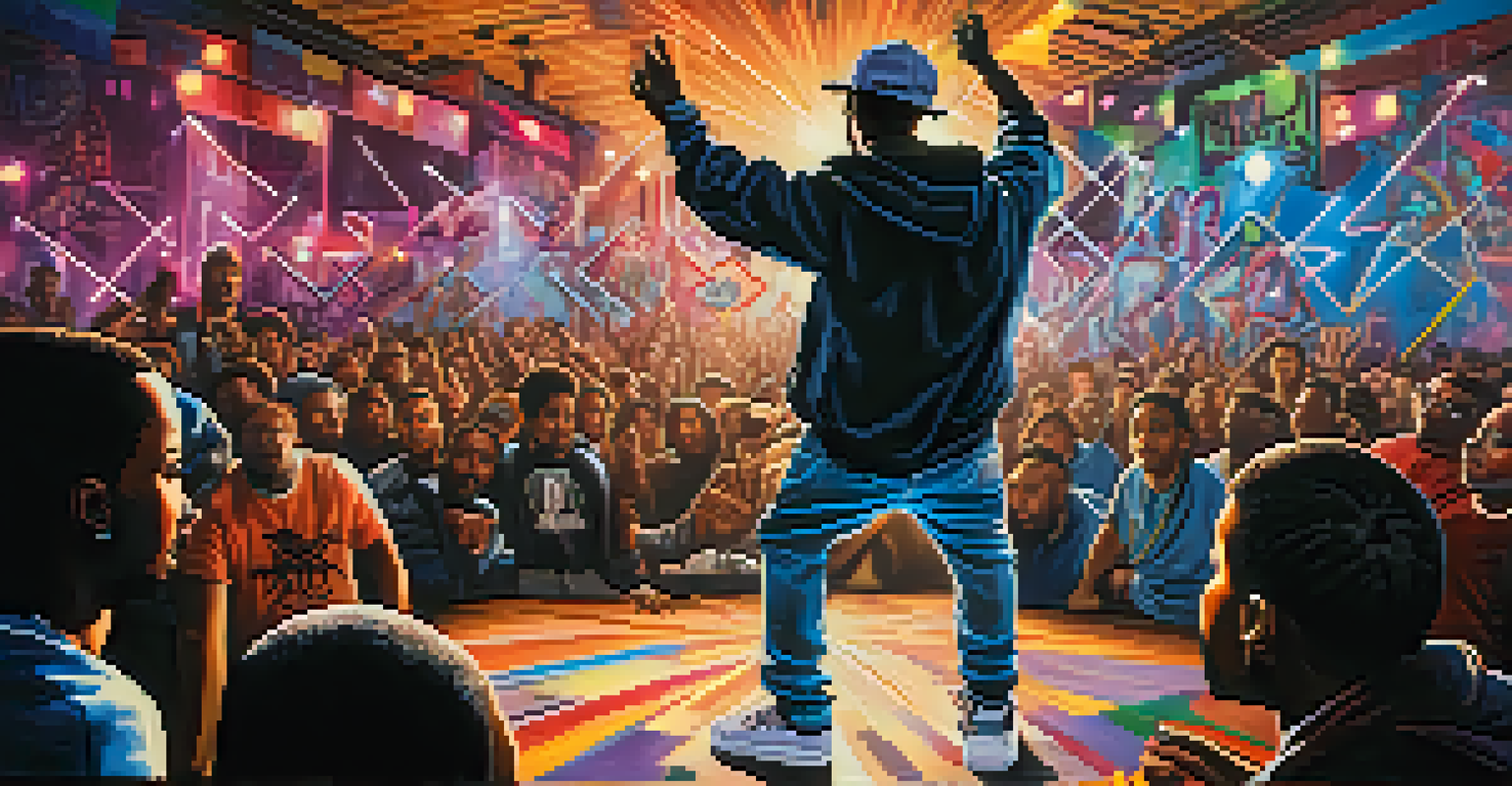Cultural Exchange Through Music: A Study of Diverse Genres

Understanding Cultural Exchange in Music
Cultural exchange is a beautiful process where different cultures share their traditions, beliefs, and practices. Music, as a universal language, plays a vital role in this exchange, allowing us to connect with others on a deeper level. It transcends geographical borders, enabling us to experience the essence of various cultures through their soundscapes.
Music is the universal language of mankind.
For instance, when you listen to reggae music from Jamaica, you can feel the island's vibrant spirit and the historical struggles of its people. Similarly, when you explore Indian classical music, the intricate rhythms and melodies can transport you to the heart of its rich heritage. This sharing of music fosters understanding and appreciation among diverse cultures.
Through music festivals, collaborations, and online platforms, artists from different backgrounds come together to create something unique. This not only enriches their work but also introduces their audiences to new cultural perspectives, reinforcing the idea that music is a bridge connecting us all.
The Role of Folk Music in Cultural Exchange
Folk music is often the heartbeat of a culture, reflecting the stories, traditions, and values of a community. These songs are passed down through generations, serving as a means of preserving identity while also inviting exchange. For example, American folk music has roots in various immigrant traditions, showcasing influences from Irish, African, and Native American music.

When folk music is shared across borders, it evolves, absorbing elements from other genres and cultures. Consider how the song 'This Land Is Your Land' has been embraced by various communities, each adding their unique touch. This adaptation highlights how folk music can foster a sense of belonging while simultaneously celebrating diversity.
Music Bridges Cultural Divides
Through various genres, music acts as a universal language that fosters understanding and connection among diverse cultures.
Moreover, folk music festivals often bring together performers from different backgrounds, creating a melting pot of sounds and stories. This interaction not only nurtures artistic growth but also cultivates empathy and appreciation for different lifestyles, demonstrating the power of music in cultural exchange.
The Influence of Jazz: A Cultural Melting Pot
Jazz music is a prime example of cultural exchange, with its origins rooted in African American communities in the early 20th century. It combines elements from African rhythms, European harmonies, and blues, showcasing a rich tapestry of influences. This genre reflects the melting pot that is America, where diverse cultural threads weave together to create something entirely new.
The power of music makes all the difference. It can heal, inspire, and connect us across cultures.
As jazz spread globally, it adapted to local styles, giving rise to unique sub-genres. For example, Brazilian bossa nova incorporates samba rhythms, while Japanese jazz infuses traditional melodies into its arrangements. This continual evolution highlights how music serves as a reflection of cultural dynamics and shared experiences.
Jazz festivals around the world celebrate this diversity, bringing together musicians and audiences from various backgrounds. These events not only highlight the genre's roots but also foster collaboration and innovation, proving that music can break down barriers and unite people through shared creativity.
Pop Music's Global Impact on Cultural Exchange
Pop music has become a dominant force in cultural exchange, largely due to its accessibility and widespread appeal. Artists like Beyoncé, BTS, and Shakira have transcended their cultural origins, reaching audiences worldwide and sparking interest in their respective backgrounds. This phenomenon encourages fans to explore different cultures through music, fashion, and dance.
The collaboration between artists from diverse genres is another way pop music fosters cultural exchange. When an artist like Ed Sheeran teams up with Latin superstar J Balvin, it creates a unique blend that introduces listeners to new sounds and cultural narratives. These collaborations not only enrich the artists’ repertoires but also promote cultural appreciation among their fans.
Folk Music Preserves Identity
Folk music reflects community values and traditions, facilitating cultural exchange while inviting adaptations and new influences.
Moreover, social media plays a significant role in amplifying this cultural exchange. Platforms like TikTok and YouTube enable users to discover and share music from around the globe, breaking down geographical barriers. This democratization of music has made it easier for different cultures to influence each other, creating a vibrant global music scene.
Classical Music: A Timeless Exchange Across Cultures
Classical music, with its rich history and complex compositions, also plays a role in cultural exchange. Many classical composers drew inspiration from folk traditions, incorporating various cultural elements into their works. For instance, Dvořák's 'New World Symphony' reflects the influence of African American spirituals, showcasing a dialogue between cultures that transcends time.
Furthermore, classical music festivals often feature international artists, promoting cross-cultural collaborations. These events not only celebrate the genre's diversity but also encourage musicians to explore and fuse different styles. This blending of traditions allows for a deeper understanding of cultural heritage and fosters a sense of unity among diverse communities.
As classical music continues to evolve, contemporary composers are increasingly incorporating diverse influences into their compositions. This modern approach not only honors the genre's roots but also enriches its future, ensuring that classical music remains a dynamic part of the cultural exchange landscape.
Hip Hop: A Voice for Cultural Narratives
Hip hop has emerged as a powerful medium for cultural exchange, giving voice to marginalized communities around the globe. Originating in the Bronx, this genre quickly spread, adapting to local contexts and incorporating various influences. From the rhythmic beats of African drumming to the lyrical styles of Caribbean music, hip hop reflects a rich tapestry of cultural narratives.
As hip hop artists collaborate internationally, they share their stories and experiences, creating a conversation that transcends borders. For instance, artists like K'naan from Somalia and MHD from France incorporate their cultural backgrounds into their music, broadening the genre's appeal and fostering greater understanding among listeners.
Hip Hop Empowers Cultural Narratives
Hip hop serves as a powerful medium for marginalized voices, promoting cross-cultural dialogue and addressing social issues worldwide.
Moreover, hip hop's emphasis on storytelling allows for the exploration of social issues, identity, and cultural pride. This makes it a powerful tool for advocacy and education, enabling artists to challenge stereotypes and promote dialogue. Through its global reach, hip hop continues to be a catalyst for cultural exchange, inspiring future generations to embrace diversity.
The Future of Cultural Exchange Through Music
As we look to the future, the role of music in cultural exchange is only set to grow. With advancements in technology and the rise of streaming services, artists from all corners of the world can share their music and stories with a global audience. This increased accessibility paves the way for more collaborations and cross-cultural experiences.
The continued blending of genres will lead to new musical forms that reflect the complexities of our interconnected world. Genres like reggaeton and Afrobeat have already gained significant traction, showcasing the beauty of cultural fusion. This evolution not only enriches the music landscape but also invites listeners to engage with diverse cultures in meaningful ways.

Ultimately, music serves as a bridge that fosters understanding and appreciation among different cultures. By embracing this exchange, we can celebrate our differences while recognizing our shared humanity. As we move forward, let’s remember the power of music to unite us and inspire a more inclusive world.